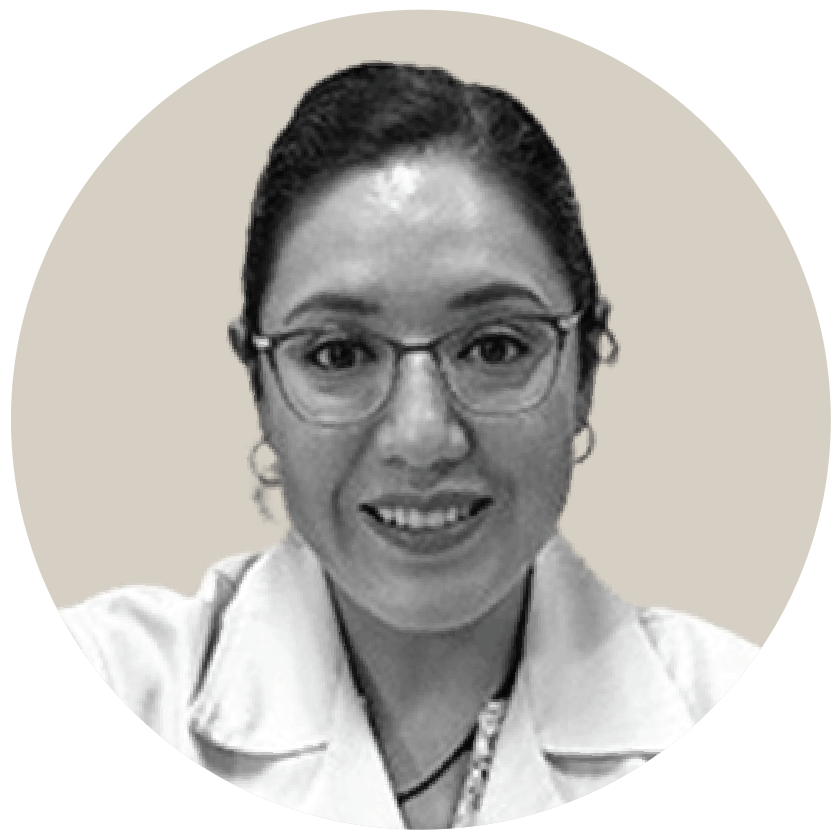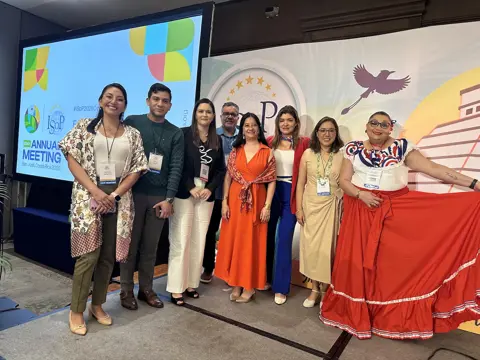
Jessica Liliana Vargas-Neri
Head of the Department of Pharmacoepidemiological Research,
Hospital Infantil de México Federico Gómez

More than 200 participants gathered in Mérida, Mexico, to discuss regional cooperation and emerging technologies in medicines safety across Latin America.
From 20-22 August this year, the historic city of Mérida, Yucatán, in Mexico, hosted the 7th Symposium of the Latin American Chapter of the International Society of Pharmacovigilance (ISoP). The event, themed "Driving Innovation in Pharmacovigilance in Latin America", brought together regulators, academics, healthcare professionals, industry representatives, and patient associations from across the region and beyond. More than 200 participants engaged in three days of high-level discussions, hands-on workshops, and networking activities.
Angela Caro (president of ISoP), Patricia Clark (secretary of Mexico's General Health Council), Liliana Vargas (president of ISoP Latin American Chapter), alongside Gandi Rayón (representing COFEPRIS, Mexico's regulatory authority) and Justo Sierra (representing the Ministry of Health of Yucatán) inaugurated the symposium. This opening reflected the strong collaboration between international, national, and regional institutions committed to advancing medicines safety.
The comprehensive programme focused on current and future directions in pharmacovigilance, emphasising regional cooperation and emerging technologies.
Key themes included:
Pharmacovigilance and public health: Sessions addressed access gaps in healthcare, the impact of generic and over-the-counter medicines, and the need for stronger safety cultures across all health professions.
Governance and regulation: Regulatory authorities from Mexico, Brazil, Colombia, Costa Rica, Chile, Ecuador, and Peru, plus CAEME representing the industry perspective, discussed barriers and opportunities for regional harmonisation, including advances in electronic reporting and risk management.
Pharmacovigilance 4.0: Experts from Uppsala Monitoring Centre (UMC), the pharmaceutical industry, health institutions, and academia showcased the role of artificial intelligence, automation, and real-world evidence in strengthening medicines safety, while emphasising the importance of critical human oversight.
Patient-centred approaches: Dedicated panels focused on vulnerable populations such as children, older adults, and people living with HIV, the role of patient associations, and the integration of empathy and communication skills into pharmacovigilance practice.
Emerging challenges: Discussions highlighted medication errors, substandard and falsified products, biosimilars, orphan drugs, and ecopharmacovigilance, underlining the pressing need for robust monitoring systems in Latin America.

Interactive workshops on WHODrug, MedDRA coding, and risk management strategies, led by UMC experts and international collaborators, provided practical training opportunities. The "Voces de Latinoamérica" sessions gave attendees a platform to share position papers and strengthen collaborative networks.
Beyond the academic programme, the symposium unfolded in a vibrant cultural setting. Participants enjoyed regional cuisine, folkloric traditions, and a unique atmosphere of inspiration, cooperation, and friendship that made the gathering not only productive but memorable.
The symposium closed with reflections on the importance of education, collaboration, and innovation in building resilient pharmacovigilance systems. Participants agreed that Latin America is advancing rapidly, but sustained investment, regulatory alignment, and capacity-building remain crucial to maintain this upward trend.
By fostering dialogue between diverse stakeholders and showcasing both local initiatives and global perspectives, the 7th Symposium of the ISoP Latin American Chapter reinforced its role as a vital forum to shape the future of medicines safety in the region.
This article was written by the author on behalf of the scientific committee of the symposium.
Two-thirds of pharmacists in Nigeria witness weekly cough syrup abuse, yet poor reporting systems and unclear guidelines prevent effective intervention, leaving its youth at risk.
03 December 2025
The annual #MedSafetyWeek campaign reminds us that medicines work best when they're safe. In Aligarh, healthcare workers came together to make that message a living reality.
19 November 2025
Since 2020, the ICPV has worked to improve drug safety reporting at Instituto Nacional de Cardiología Ignacio Chávez, with promising outcomes.
16 October 2025